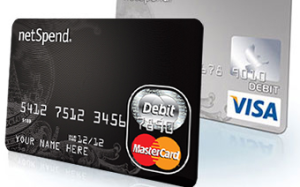Here’s Why Employers & Banks Love Putting Wages On Prepaid Debit Cards, And Why Employees Keep Their Pay In Shoeboxes
The NY Times has a pretty interesting piece on the topic, talking to various interested parties. Here’s what it boils down to:
1. Businesses like the cards because they save money.
The banks and card companies that provide payroll services via prepaid debit cards use cost savings as the main selling point. This calculator on the Visa payment solutions site shows how much a typical business could save each year by switching. For a business with 100 employees getting paid on a bi-weekly basis, it calculates around $4,200 each year in savings over traditional methods. A business with 500 such employees saves more than $21,000 a year, claims the Visa calculator.
However, in order to see the highest level of savings, the employer would need to get all of its workers using the prepaid card. This gets into the issue of personal choice that we’ll talk about in a few paragraphs.
2. Banks like the cards because they are laden with fees and largely unregulated.
You know all those financial reforms that the banks have been complaining about for the last three years? They basically didn’t do much to rein in the prepaid debit card business.
Like the inactivity fees that are now verboten on credit cards and standard debit cards. Not so much for prepaid. Payroll cards used by at least two dozen major retailers carry inactivity fees of $7.
Then there are fees like $1.50 to transfer money from the card to a checking account, $.50 to make a purchase using the card, $2.25 out-of-network ATM fees.
3. Employees hate them because they chip away at already meager paychecks.
Employers claim that these cards benefit many minimum wage employees who don’t have a bank account by giving them instant access to their money without the even higher fees usually charged by check-cashing businesses.
There is a kernel of truth to that, as there are approximately 10 million “unbanked” workers in the U.S. But should those employees with bank accounts be harmed because of the few without?
And so here we get to the issue of personal choice. While some employers claim that prepaid payroll cards are only one of the options available to employees, some businesses are making the cards the sole option.
The plaintiff in the suit against the McDonald’s franchisees says her repeated requests to have her money deposited in her credit union account were denied. Others whose employees say that workers can opt out of the card tell the Times that opting out is a laborious, confusing process.
If employers, especially small-to-midsize businesses, don’t force the payroll cards on all wage employees, they won’t realize the savings that makes the card worthwhile. But businesses have to realize that those savings are ultimately coming out of employees’ pockets and going to the card companies’ fees.
As a result, some employees are turning away from banks and debit cards.
One Taco Bell employee, who tells the Times that she was told by her employer to pick the prepaid card, said she realized it was less expensive for her to withdraw all of her wages once a month and then use cash — which she keeps in a shoebox — to pay for things.
Want more consumer news? Visit our parent organization, Consumer Reports, for the latest on scams, recalls, and other consumer issues.


